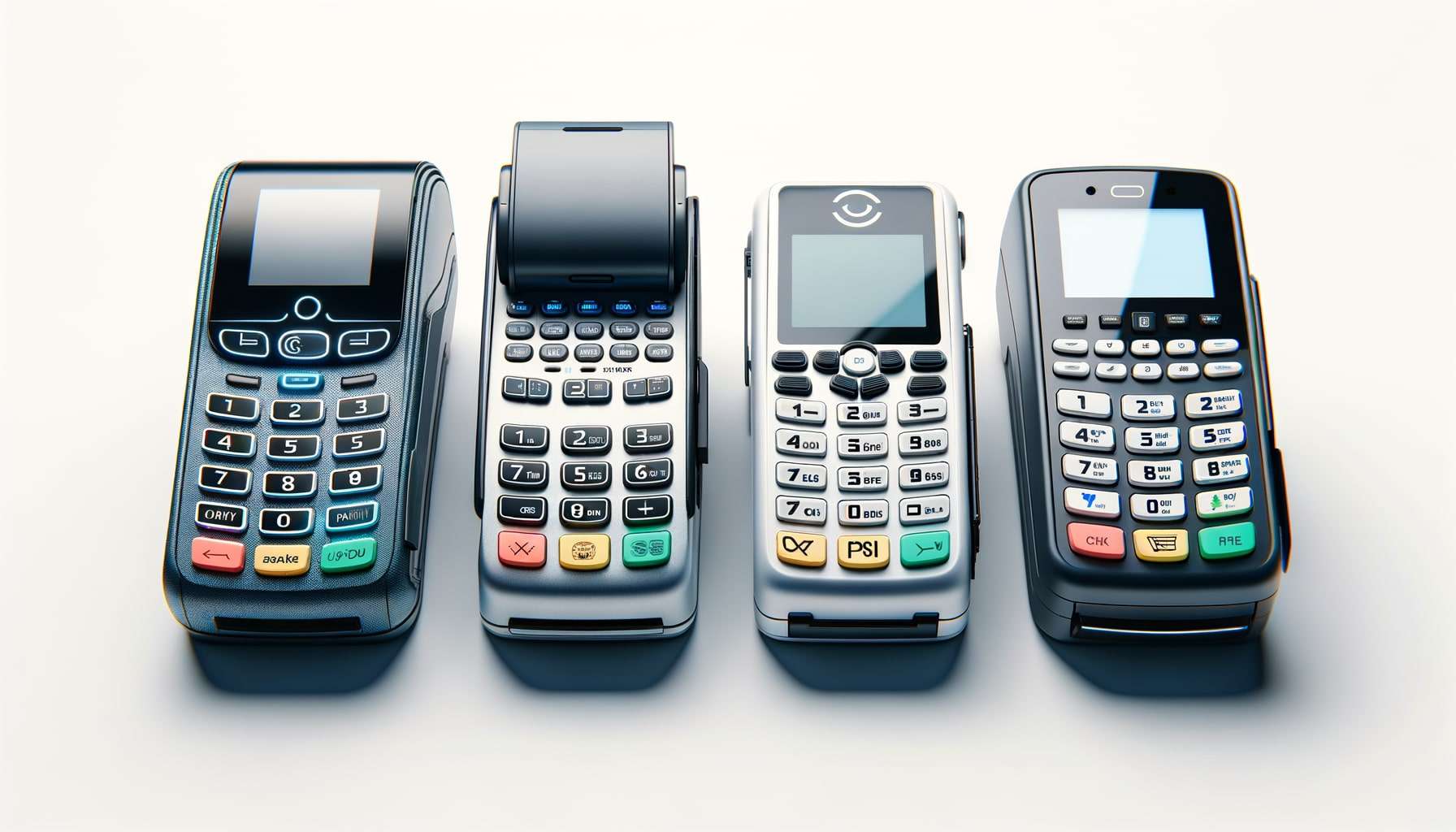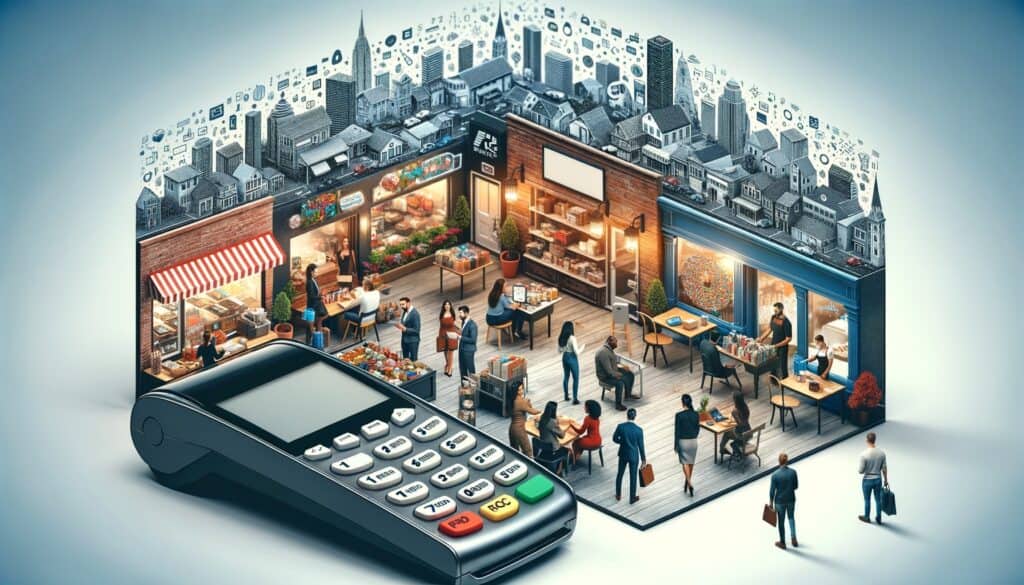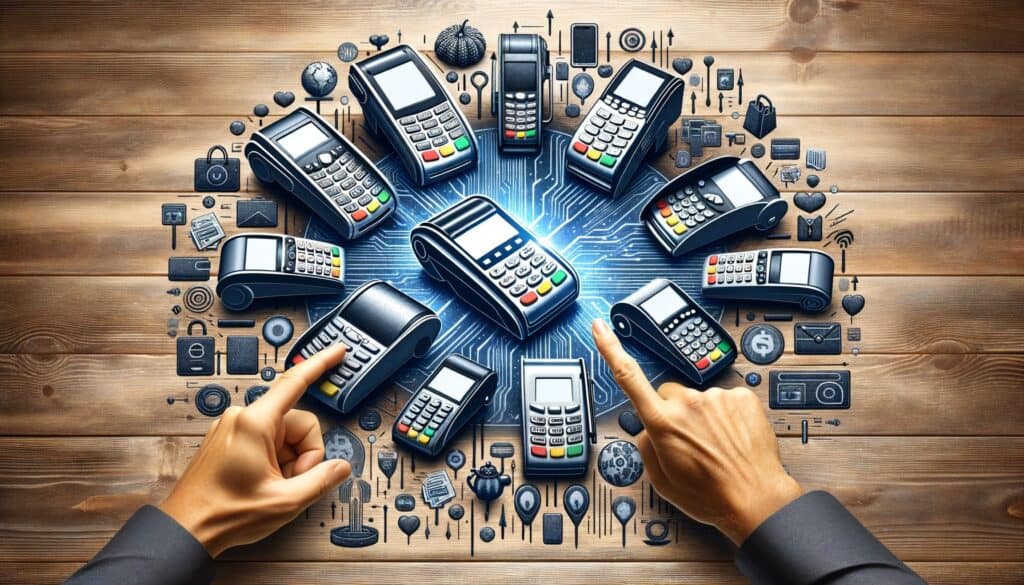
By Carol Peters October 9, 2024
In today’s world, small businesses must be able to accept credit and debit card payments to stay competitive and meet customer demands. Whether you’re running a retail store, restaurant, online business, or a service-based company, accepting credit cards is no longer optional—it’s essential. Credit card machines allow businesses to process payments quickly, securely, and efficiently.
This comprehensive guide will explain how to get credit card machines for your small business, the types of machines available, what factors to consider when choosing one, the associated costs, and how to set everything up. Additionally, we’ll cover the common questions business owners have and offer insights into maximizing the value of credit card machines for your business.
Why Credit Card Machines Are Essential for Small Businesses

- Customer Convenience: Most consumers today prefer using cards over cash. By accepting card payments, you offer your customers the flexibility they expect.
- Increased Sales: Studies show that businesses that accept credit and debit cards see a significant increase in sales compared to those that are cash-only.
- Security: Credit card transactions are generally more secure than cash payments, reducing the risk of theft and fraud.
- Broader Reach: Accepting card payments means you can serve a wider range of customers, including those who prefer mobile or contactless payments.
Types of Credit Card Machines for Small Businesses
There are several types of credit card machines available, each suited for different business types and needs. Understanding these types will help you choose the best option for your small business.
1. Countertop Credit Card Terminals
Countertop credit card machines are traditional card terminals designed for businesses with a fixed location. These devices are connected to a power source and typically process payments via phone lines or the internet.
- Best for: Retail stores, restaurants, and other businesses with a physical location.
- Features: Accept EMV chip cards, magnetic stripe cards, and contactless payments like Apple Pay and Google Pay.
- Cost: Ranges between $200 and $600.
2. Wireless Credit Card Machines
Wireless credit card machines allow businesses to process payments without being tethered to a specific location. These machines use Wi-Fi or cellular networks, making them perfect for businesses that operate on the move.
- Best for: Food trucks, outdoor vendors, or mobile service providers.
- Features: Portable and lightweight, supports multiple payment types.
- Cost: Typically ranges from $300 to $800.
3. Mobile Credit Card Readers
Mobile credit card readers are small devices that connect to smartphones or tablets via Bluetooth or an audio jack. These readers are highly portable and affordable, making them ideal for small businesses or freelancers on the go.
- Best for: Freelancers, small businesses, and service-based industries.
- Features: Accepts magnetic stripe and EMV chip cards, some also accept contactless payments.
- Cost: Usually between $20 and $100, plus transaction fees.
4. Virtual Terminals
A virtual terminal allows businesses to accept credit card payments online or over the phone without the need for a physical card machine. It’s a software-based payment solution that lets merchants manually enter payment information through a secure website.
- Best for: E-commerce businesses, consultants, or businesses handling phone orders.
- Features: No physical terminal required, useful for card-not-present transactions.
- Cost: Typically $20 to $50 per month.
5. Point-of-Sale (POS) Systems
POS systems integrate credit card processing with other business management tools such as inventory tracking, employee management, and reporting. These systems are ideal for businesses that need more advanced functionality beyond just payment processing.
- Best for: Restaurants, retail stores, and businesses with complex operations.
- Features: All-in-one systems with payment processing, inventory, and sales tracking.
- Cost: POS systems can range from $1,000 to $3,000 depending on the features.
How to Choose the Right Credit Card Machine for Your Small Business

In today’s digital age, accepting credit card payments is essential for any small business. It not only provides convenience for your customers but also opens up new opportunities for growth. However, with so many options available, choosing the right credit card machine can be overwhelming. In this article, we will guide you through the process of selecting the perfect credit card machine for your small business.
1. Assess Your Business Needs
Before diving into the world of credit card machines, it’s crucial to assess your business needs. Consider the nature of your business, the volume of transactions you expect, and the types of payments you want to accept. Are you primarily a brick-and-mortar store, or do you also sell products online? Understanding your requirements will help you narrow down your options.
2. Research Different Types of Credit Card Machines
There are various types of credit card machines available, each with its own set of features and functionalities. The most common types include countertop terminals, mobile card readers, and virtual terminals. Countertop terminals are ideal for businesses with a fixed location, while mobile card readers are perfect for on-the-go businesses. Virtual terminals, on the other hand, allow you to accept payments online or over the phone. Researching these options will give you a better understanding of what suits your business best.
3. Consider Security Features
Security should be a top priority when choosing a credit card machine. Look for machines that comply with the Payment Card Industry Data Security Standard (PCI DSS). This ensures that your customers’ sensitive information is protected. Additionally, consider machines that offer encryption and tokenization features, which further enhance security.
4. Evaluate Costs and Fees
Credit card machines come with various costs and fees, so it’s important to evaluate them before making a decision. Look for machines with transparent pricing structures and no hidden fees. Consider factors such as setup fees, monthly fees, transaction fees, and any additional charges for extra features. Comparing costs will help you find a machine that fits within your budget.
5. Check Compatibility and Integration
If you already have existing systems in place, such as a point-of-sale (POS) system or accounting software, it’s crucial to ensure that your chosen credit card machine is compatible and can integrate seamlessly. This will save you time and effort in the long run and prevent any disruptions to your business operations.
6. Read Reviews and Seek Recommendations
Before finalizing your decision, take the time to read reviews and seek recommendations from other small business owners. Online platforms and forums can provide valuable insights into the experiences of others. Pay attention to factors such as customer support, reliability, and ease of use. This information will help you make an informed decision.
How to Get a Credit Card Machine for Your Small Business
Getting a credit card machine for your business involves several steps. Whether you choose to purchase, lease, or receive one through a payment processor, these steps will help guide you through the process.
Step 1: Determine Your Business Needs
Before diving into the process of acquiring credit card machines, it is crucial to assess your business needs. Consider factors such as the volume of transactions, the types of payments you want to accept (e.g., chip cards, contactless payments), and any specific features you require. This evaluation will help you choose the right credit card machine that suits your business requirements.
Step 2: Research Different Providers
Once you have a clear understanding of your business needs, it’s time to research different providers. Look for reputable companies that offer credit card machines specifically designed for small businesses. Compare their pricing, features, and customer reviews to make an informed decision. It is also advisable to check if the provider offers additional services like 24/7 customer support and fraud protection.
Step 3: Choose the Right Type of Credit Card Machine
Credit card machines come in various types, including countertop terminals, mobile card readers, and virtual terminals. Consider the nature of your business and how you plan to accept payments. If you have a physical store, a countertop terminal may be suitable. On the other hand, if you frequently conduct business on the go, a mobile card reader that connects to your smartphone or tablet might be more convenient. Virtual terminals are ideal for businesses that primarily operate online.
Step 4: Compare Pricing and Fees
Pricing and fees can vary significantly among different credit card machine providers. Take the time to compare the costs associated with each option. Look for any hidden fees, such as setup fees, monthly fees, transaction fees, and cancellation fees. It is essential to have a clear understanding of the total cost of ownership before making a decision.
Step 5: Apply for a Merchant Account
To accept credit card payments, you will need to apply for a merchant account. A merchant account is a type of bank account that allows businesses to accept card payments. Research different financial institutions or payment processors that offer merchant accounts and compare their terms and conditions. Consider factors such as application fees, transaction fees, and the time it takes to set up the account.
Step 6: Complete the Application Process
Once you have chosen a provider and applied for a merchant account, you will need to complete the application process. This typically involves providing necessary business information, such as your business name, address, tax identification number, and financial statements. The provider may also require additional documentation, such as proof of identity and business licenses. Ensure that you have all the required documents ready to expedite the application process.
Step 7: Set Up and Test Your Credit Card Machine
After your application is approved, the provider will send you the credit card machine. Follow the instructions provided to set up the machine and connect it to your merchant account. Test the machine thoroughly to ensure that it is functioning correctly and can process payments seamlessly.
FAQs
Q.1: How much does a credit card machine cost for small businesses?
Credit card machines range in price depending on the type and features. Basic mobile readers may cost as little as $20, while advanced POS systems can cost upwards of $1,000. Additionally, transaction and monthly service fees apply.
Q.2: Can I lease a credit card machine instead of buying one?
Yes, many payment processors offer leasing options for credit card machines. Leasing allows you to pay a monthly fee rather than an upfront cost, but it may be more expensive over time due to ongoing payments.
Q.3: What are transaction fees, and how do they affect my business?
Transaction fees are the fees payment processors charge per credit card transaction. They usually range from 1.5% to 3.5% of the transaction amount. These fees impact your profit margins, so it’s important to factor them into your pricing.
Q.4: Do I need a credit card machine to accept online payments?
No, if you run an e-commerce business or accept phone orders, you can use a virtual terminal to process payments without a physical machine. Virtual terminals allow you to manually enter customer payment information.
Q.5: Can I use the same credit card machine for multiple business locations?
Some credit card machines can be set up to process payments for multiple locations, especially wireless or mobile readers. However, check with your payment processor to see if additional fees or equipment are needed for multi-location setups.
